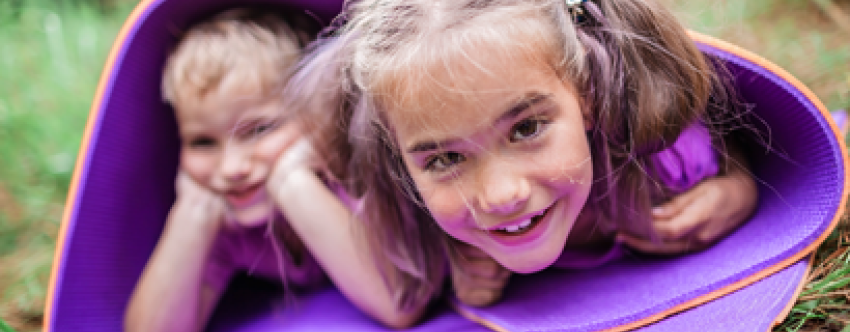News & Views

Four ways to maintain pupil resilience during the holidays
For many children, the school environment provides structure, routines and a sense of belonging. As we continue to navigate our way through post-pandemic times, this article highlights the need for students to feel safe and have their social, emotional and physical needs met during the summer break.
Self-determination theory (SDT) explores a human-emotional needs approach to psychological health and wellbeing. According to this concept, everyone needs:
- autonomy – freedom to learn, grow, reflect and develop metacognition skills
- competence – a sense of achievement and experiencing the impact
- relatedness – connecting with others, emphasising the importance of intimacy, community and attention.
When adults encourage children to be autonomous, competent and connected, in any area they set their sights upon, it not only builds emotional resilience but equips them with key life skills to grow into well-rounded young adults. Here are four ways adults can embed SDT (human-emotional needs) into children’s lives over the holidays and beyond.
1. Connect with emotions
Transitioning from school routines into the holiday season can be an exciting time but it can also be daunting, lonely and overwhelming. In any one day, children may experience a range of emotions, so it’s essential for adults to normalise that it’s okay not to be okay and provide a safe space for children to express their emotions:
- Autonomy – encourage pupils to communicate their feelings in a way they feel most comfortable, like talking with a trusted adult or friend, using physical movement, writing in a journal or trying creative arts.
- Competence – use age-appropriate props to develop emotional literacy, like the Zones of Regulation, emotion cards or watching films like Inside Out.
- Relatedness – schedule ‘talk time’ where children have a non-judgemental space to share their feelings with a trusted, non-judgemental adult, family or friend.
2. Create routines and rituals
School may be out for the summer, but an unstructured home environment can be disorientating for children during the holidays. Where possible, children need predictable routines and rituals (including sleep, exercise and meal times) where they can thrive and maintain a sense of belonging.
- Autonomy – ask children to help plan a balanced range of active and relaxing activities, including time in nature, healthy meals and bedtime routines.
- Competence – use a calendar to schedule weekly activities and holiday rituals. Place the calendar somewhere visible and remind children that things may change, due to COVID-19 or other unexpected events.
- Relatedness – create family rituals (or with friends/loved ones), like making dinner together once a week or watching a film on a specific day. Further ideas for family rituals can be found here.
3. Make a holiday scrapbook
Encouraging children to create a holiday scrapbook or journal is a great way to ignite their creativity while developing their language and literacy, cognition, fine motor and social-emotional skills.
- Autonomy – ask children to take photos, draw pictures and keep any tickets or leaflets from places they visit over the holidays.
- Competence – decorate and create a scrapbook from scratch, then fill it with memorable activities from the holidays. This can bring a sense of joy and boost self-esteem.
- Relatedness – encourage children to share their scrapbooks with family members and friends. If appropriate, encourage them to show it to their teacher or form tutor in the new academic year.
4. Practise mindfulness
Mindfulness is the process of paying attention and being in the present moment without passing judgement. As a simple and effective tool, adults can practise mindfulness to help children self-regulate, improve their focus and build resilience over the holidays.
- Autonomy – encourage children to pause every now and then, focus on their breathing and notice how their thoughts, actions and bodily sensations make them feel.
- Competence – a great way to equip children with the skills to practice mindfulness, is through the STAR model (Stop Take a Breath And Relax), which has been outlined in the book, Mindful Little Yogis.
- Relatedness – mindfulness can also be practised while connecting with others, like asking the family to turn their phones off during mealtimes, playing a board game or simply going for a walk with friends in nature.
All of these steps can be adapted for different age groups to support emotional health and wellbeing during the holiday season and beyond. If you are supporting a child at risk and you’re concerned about their wellbeing or safety over the holidays, please talk with a member of your school’s senior leadership team, mental health lead or safeguarding officer.
Sign up for the Pupil Resilience Award to discover more ways to support your pupils' resilience.
About the author

Nicola Harvey is a former senior teacher, author and currently a digital mental health manager for a national youth charity. Her books, Mindful Little Yogis and Self-Care Activity Book for Kids, explore the importance of using inclusive wellbeing strategies to support children and young people. She is passionate about mental health and has a firm interest in mindfulness, diversity and inclusion. You can follow Nicola on Twitter @HarveyHeals.